Case 10 : 5 year old Autistic child’s healing journey
A female approached us with her 5 year old son diagnosed with Autism. Mother informed about the following behavioral issues in the child. The child was unable to sit still, was chewing his clothes and paper, poor ability to understand and respond to basic cues like hunger, urination or defecation. Also episodes of toe walking were observed, was not following general instructions, poorly developed language skills only makes sounds and cries.
He was tested for comprehensive stool and parasitology, his biomarkers were checked in organix profile. Also was tested for heavy metals and trace minerals along with other blood investigations.
His stool comprehensive results showed dysbiotic flora i.e. 4+ Campylobacter spp. and 4+ Klebsiella pneumonia that have the potential to cause disease in the GI tract. They can be present due to exposure to toxins/chemicals, excessive use of antibiotics, poor diet etc.
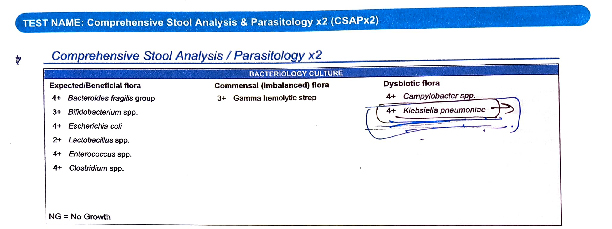
Household pets can also carry Campylobacter and pass the bacteria to their owners. Klebsiella pneumonia strains have shown to produce a cytotoxin that is capable of inducing cell death in various epithelial-cell cultures. Also Candida tropicalis was detected in stool report.(pic 2,3)
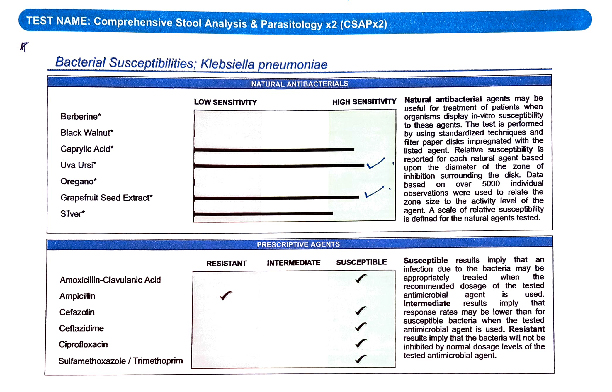
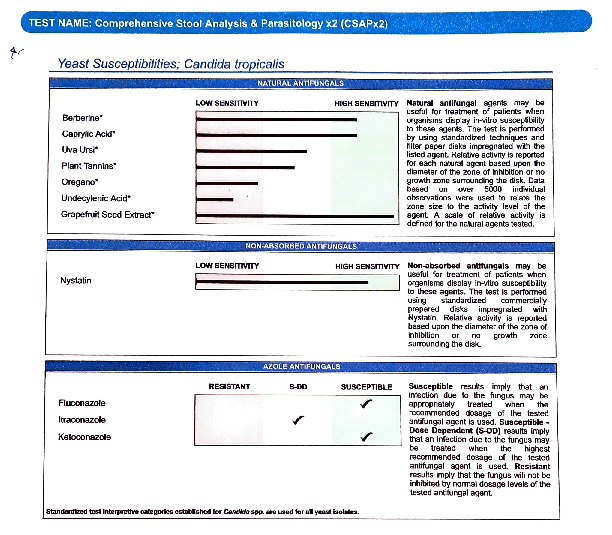
His organix tests revealed abnormal high level of biomarkers including suberate, L-lactate, citrate, succinate, a-ketaglutarte and many other. (Pic 4)
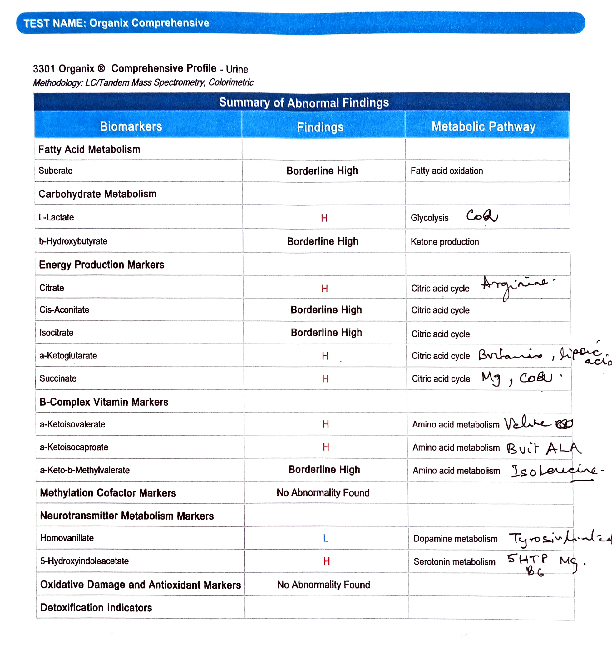
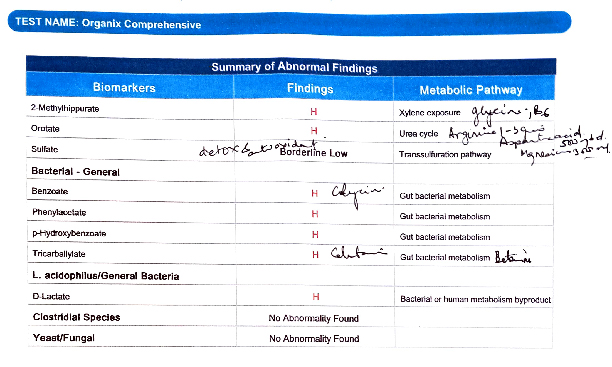
Neuroadvanced profile showed lower level of serotonin, 5-HIAA, glycine, histamine, dopamine, DOPAC, nor-adrenaline, adrenaline.(pic:5)

Low serotonin is associated with anxiety, depression, and changes in appetite, heightened sensitivity to pain, rashes, hunger, low mood, migraine, obsessive compulsive disorder, panic disorder and sleep disturbances.
High GABA levels are suspected in anxiety, excessive need for sleep, foggy thinking, lethargy, inflammation, and sluggishness. High GABA is often associated with low serotonin.
Low levels of Glycine may be indicative of chronically increased demand for tetrahydrafolate (active folic acid) production.
Histamine plays the dual role as a neurotransmitter and as a modulator of the immune system. Low histamine is associated with frustration, excessive need for sleep, low productivity, mild depression, tension headaches and weight gain.
Dopamine improves attention, focus, and motivation, helps with decision making, modulates movement control, increases blood pressure, urine output and sodium excretion, and allows for feelings of reward and pleasure. Clinically, low dopamine is implicated in depression, fatigue, impulse control issues, increased sensitivity to pain, low mood, memory issues, sleep disturbances, and weight control.
Epinephrine functions both as a neurotransmitter and as a hormone, participating in the body’s fight or flight response. Epinephrine increases alertness, focuses attention, fine-tunes vigilance, increases blood pressure, heart rate, and blood glucose, reduces digestive activity, pain and sleep, prevents bladder emptying, and regulates body temperature. Low epinephrine is implicated in attention impairment, chronic stress, depression, dizziness, chronic fatigue, hypotension, low mood and libido, and memory issues.
Blood work results showed high ESR, very high cholesterol @296.9 mg/dl (normal is upto 200) for a 5 year old, low insulin fasting @2.80 uIU/mL (normal is 3.21-16.32). Also he was found positive for candida IgG.
His mineral test report showed low silicon, zinc, chromium and compensatory accumulation of selenium.
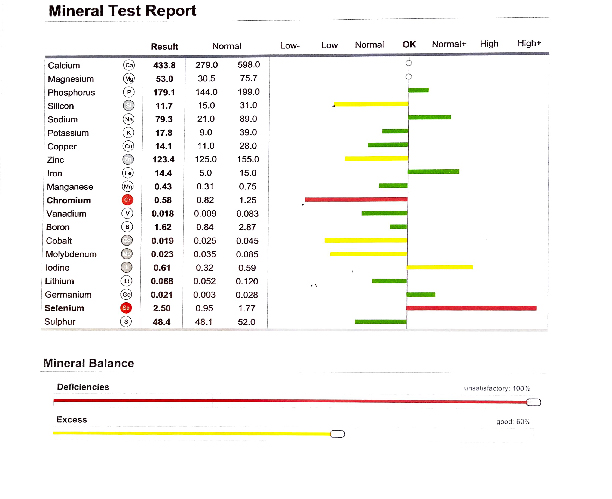
Heavy metal test report reveals toxic level of aluminum.
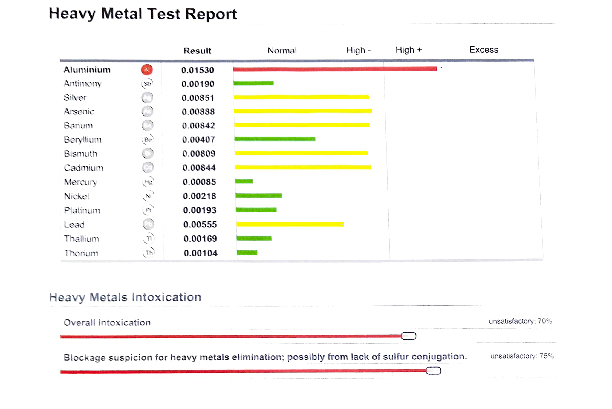
On the basis of the test results and overall assessment, his treatment protocol was made that included nutraceuticals, gut healing therapy, detox therapies, specific nutrients to balance out his imbalanced minerals in the body, specialized diet plan.
Follow up with mother after 6 months revealed that child has better understanding of commands, tries to communicate in his own way, is generally happy, is able to sit at a place for longer duration, tries to ingest food on his own and is continuing to be on the path of recovery.
